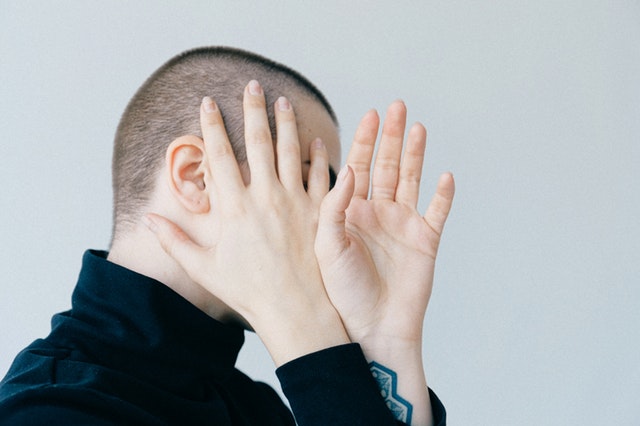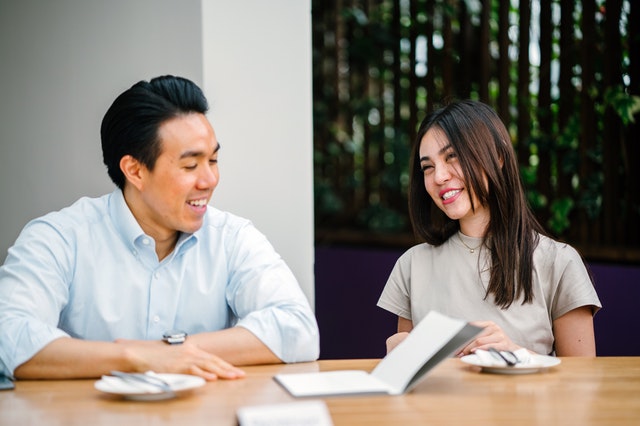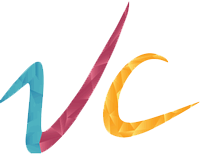- Site Navigation
- About Us
- Meet the Team
- Join us
- Job search
- News
- Contact us
- Our Expertise
- Engineering Recruitment
- USA recruitment
- Account
- Login
- Register
- Upload CV
- Submit A Vacancy
Introverts and Extroverts: Preparing for an interview
Every single one of us is unique. Some of us love being the centre of attention and sparking up conversations with strangers no matter where they are. Whereas, others prefer to view scenarios from afar and only feel comfortable talking to people they know really well. The former are known as extroverts and the latter are introverts. Both groups have their own strengths to bring to the table that can make them valuable employees.
Regardless of whether you’re one or the other, one thing is for certain; if you want to work, you’re going to need to succeed in a job interview. For more reserved introverts, the idea of job-interviews can be downright terrifying. This can make it harder for you to make that vital first impression because you’ll find it harder to communicate with the interviewer, particularly if they use on-the-spot questioning.
Extroverts, on the other hand, love the arena that an interview can provide and they thrive in the knowledge that all of the attention is on them. However, being too relaxed during the interview could mean that you struggle to stay on topic and reveal too much about yourself. You might also fail to listen as intently as you should, which could be an annoyance to the interviewer.
A little preparation before an interview can go a long way for introverts and extroverts alike. The key is being self-aware and understanding where your potential weaknesses lie. So, whether you’re a shy introvert or a life of the party extrovert, here are some things you can do to get yourself prepared to increase your chances of interview success.
Interview preparation tips for Introverts

Get small talk ready
As a self-proclaimed introvert, engaging in small talk with people probably isn’t your most favourite task. Unfortunately, it’s practically unavoidable when you’re in an interview setting. Not only does it show that you can get along well with others, but it also enables you to build a rapport with the interviewer which can make you more memorable. This could increase your chances of being invited to the next stage of the interview process.
To get yourself small talk ready, you need to come up with some topics of conversation, as part of your interview preparation. Talking about the weather and your journey are great examples of generic small talk topics that work well when you first meet your interviewer. But if you really want to impress, find out the name of your interviewer and search for them on LinkedIn to give you some inspiration for questions you can ask.
Practice your eye contact
Studies have found that introverts generally break eye contact when they’re talking, but give strong eye contact when they are listening to someone else. While this is perfectly fine when you’re having a catch up with your friends, it can be detrimental when you’re in an interview setting by making you seem unconfident. Thankfully, with a bit of practice, you can reduce your anxiety towards making eye contact with your interviewer ahead of your big day.
Start by gradually increasing the amount of time you look at your good friends or someone who you don’t feel anxious talking to. As you start to feel more comfortable, you can then start working your way up to more anxiety-provoking situations such as holding eye contact with a work colleague or a shop assistant while you chat. Before long, your anxiety will lessen and you’ll start to notice it less and less.
Prepare some answers in advance
Being put on the spot to answer a question is every introvert’s nightmare. This is because introverts have a more complex way of processing their thoughts and often need more time to answer a question. Unfortunately, on the spot questioning isn’t something you can always avoid in an interview scenario, particularly if you’ve got an interviewer who wants to see how you deal with being under pressure.
To alleviate the pressure of being asked curveball questions during your interview, start researching common interview questions ahead of time. This will take all of the mystery out of it all and help you feel more prepared for whatever questions your interviewer might throw at you. Don’t forget to practise your answers to these questions too with a friend or family member.
Interview preparation tips for Extroverts

Shorten your responses
Instead of introverts, who internalise their thoughts, extroverts tend to speak to help make sense of their thoughts. While there is absolutely nothing wrong with being a confident communicator, not knowing when to stop talking or straying away from the interviewer’s questions can be problematic during an interview. The last thing you want is for your interviewer to stop listening to you or for them to be frustrated by just how much you’re talking.
So rather than talking a little too much and running the risk of going off-topic, consider what questions the interviewer is likely to ask you and come up with a few key points that you'd like to talk about. Then, have a go at practising your responses with a friend and stick solely to these points. It can also be beneficial to time your responses as you practice, to highlight to yourself just how long you take to answer each question. If you’re taking too long to respond, you then know that you need to shorten your responses and take out any over-elaboration.
Get used to silence
Filling the silence during an interview might seem like a good idea in theory. But in fact, doing so could mean that you run the risk of saying something you shouldn’t, which could cost you the job. Silences in interviews aren’t necessarily a bad thing. Your interviewer might just need some time to think about their next question or need a minute to make some notes about your performance. So, if you know that you’re guilty of always trying to fill awkward silences, as many extroverts are, it’s time to turn this around for the sake of your interview.
The best way to get used to silence during a conversation is by practising at home with a friend or family member. Spark up conversations and when you reach a natural silence, do your best not to say anything until someone speaks to you first. Gradually, you’ll start to feel less uncomfortable and more content with the silence, which will stand you in good stead for when your interview arrives.
Develop your listening skills
As well as getting used to potential silences during your interview, it’s also vital for you to practise and develop your listening skills. As an extrovert, we know that it can sometimes be easy to get over-excited about a topic you’re passionate about and sometimes you’ll inadvertently interrupt others because of your excitement. While in social situations this is excusable, in an interview it could tell the interviewer that you have trouble focusing and listening to others- which could be off-putting.
To tackle this before your interview, give yourself the challenge of leaving a two-second gap between the end of someone talking and you giving a response during a conversation. This should encourage you to listen to whoever you’re talking to a lot more and help you to give a more concise answer to their question. Remember, the more relevant your answers are to your interviewer's questions, the more you’re likely to impress.
- Site Links
- Home
- About us
- Job Search
- Insights
- Join Us
- Meet the Team
- Contact
- Privacy Policy
- Clients
- Submit a Vacancy
- Candidates
- Login
- Register
- CV Upload
- Job Alerts




